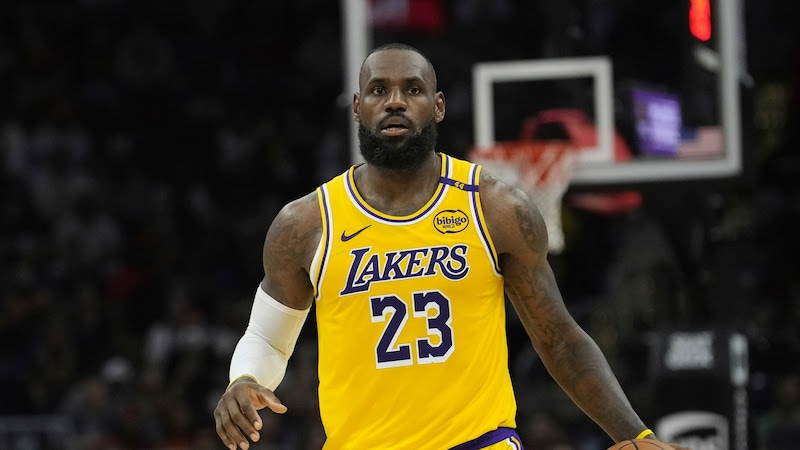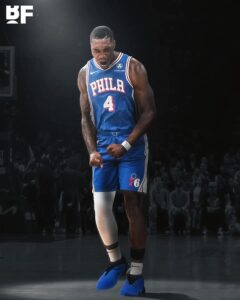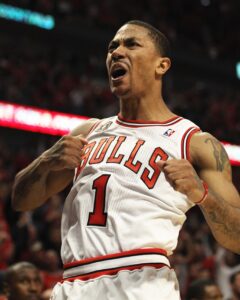
LeBron James Announces Presidential Endorsement: ‘The Choice is Clear’ — But Is It the Right Choice?
In an announcement that has reignited the intersection of sports and politics, NBA star LeBron James has officially endorsed a presidential candidate, declaring that “the choice is clear.” This endorsement has predictably stirred waves across both his fanbase and the political landscape, with responses ranging from fervent support to outright backlash. While it’s not unusual for celebrities to take political stances, James’s position at the forefront of sports activism has amplified his endorsement’s impact. But his choice begs the question: should athletes — particularly those with as much influence as LeBron — use their platform to sway political opinions?
As one of the world’s most prominent athletes, LeBron’s support isn’t just a vote; it’s a cultural statement. With a following of millions, his words resonate far beyond basketball courts and highlight the immense power he wields in shaping public opinion. But the criticism surrounding his endorsement reflects a long-standing tension in American culture: should public figures, especially those in entertainment and sports, leverage their fame to influence national elections?
The Power and Pitfalls of LeBron’s Political Activism
LeBron James has long been more than just an athlete. From the “I Can’t Breathe” t-shirt to his outspoken support of the Black Lives Matter movement, he has embedded himself in the fabric of social activism. For many, his influence is a valuable tool in inspiring people, particularly young, minority, and marginalized groups, to engage in political action. For those who support his current endorsement, LeBron’s decision to take a stand is viewed as a noble act of leadership.
However, detractors argue that while LeBron’s activism has positively shined a light on social issues, his endorsement now ventures into a realm of personal political opinion that may alienate fans. This isn’t about social justice or community outreach, but an endorsement that inherently implies that those who do not share his views may be on the “wrong side” of his influence. Many fans argue they look up to LeBron as an athlete, not a political commentator, and they’re questioning whether his endorsement may set a concerning precedent.
Dividing Fans: A Risk or Reward?
Endorsements from athletes are not unprecedented — Muhammad Ali, Colin Kaepernick, and even Michael Jordan to an extent, have all used their platforms to spotlight political issues. Yet the growing polarization of American politics means that any political statement is likely to split public opinion. For LeBron’s fans, particularly those who disagree with his political stance, this endorsement feels like a betrayal, sparking online debates and fan group divisions. Some critics assert that LeBron’s endorsement crosses a line between using his influence for awareness versus directing his followers on how to vote.
Furthermore, LeBron’s critics argue that his deep-seated ties to corporate endorsements make it difficult to take his political alignment at face value. Is his endorsement driven by authentic conviction, or is it influenced by the interests of the brands that have invested in his image? Regardless, it raises concerns over the line between genuine activism and potential corporate-influenced virtue signaling.
Should Athletes Just Stick to Sports?
The familiar refrain of “stick to sports” has become the go-to criticism whenever athletes like LeBron James speak up on contentious issues. On one hand, athletes are citizens who, like any American, have the right to express political preferences. On the other, some argue that public figures should exercise caution, as they wield significant influence over public opinion — a responsibility that could inadvertently sway people without providing the nuanced discourse often necessary for complex issues.
Some fans feel LeBron’s endorsement places undue pressure on them to align with his views or risk appearing contrary to the ideals he champions, despite personal convictions that might differ. Should they stop supporting his career if they disagree with his politics? These are the dilemmas that arise when fandom intersects with political activism.
The Double-Edged Sword of LeBron’s Endorsement
LeBron’s decision to endorse a candidate isn’t just a statement of preference but a reflection of the times we live in. A significant portion of his fans celebrate his courage to speak out, viewing it as a symbol of hope and solidarity. But others feel alienated, seeing his endorsement as an unnecessary polarizing factor in a space they once turned to as an escape from politics. The endorsement showcases both the power and the potential downsides of having larger-than-life figures involve themselves in high-stakes elections.
Whether or not LeBron’s endorsement ultimately sways voters remains to be seen. What is clear, however, is that the lines between sports, politics, and culture are more blurred than ever. And as we continue down this path, fans must grapple with whether they can continue to separate the player from the politics.
So, does LeBron James’s endorsement enhance our democracy by engaging younger voters, or does it complicate the purity of fandom by blending politics with sports? The answer might be as divisive as the election itself.






